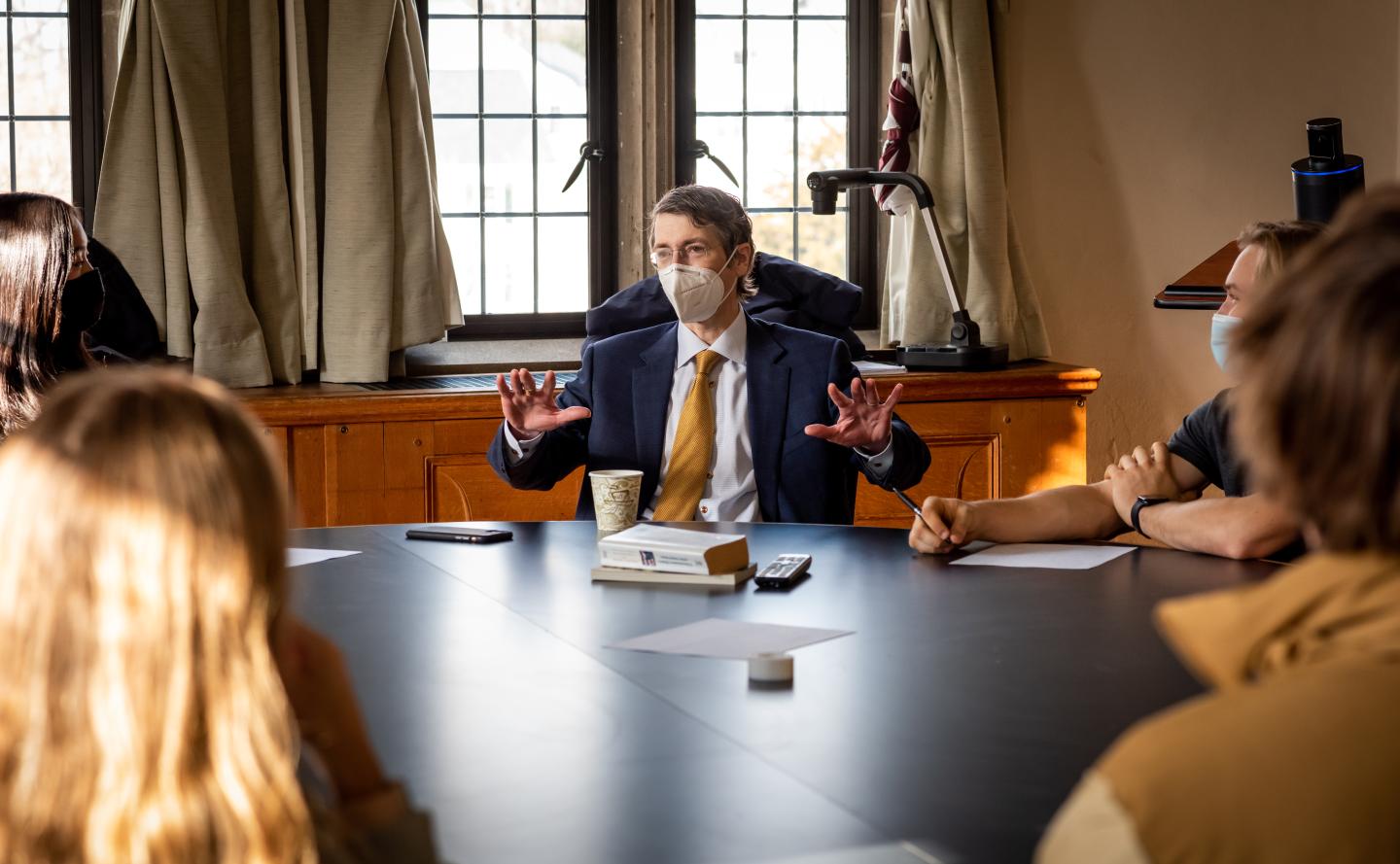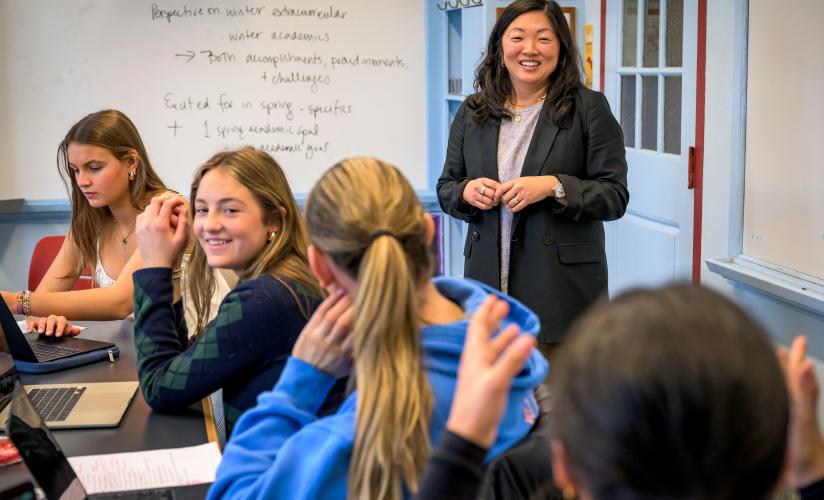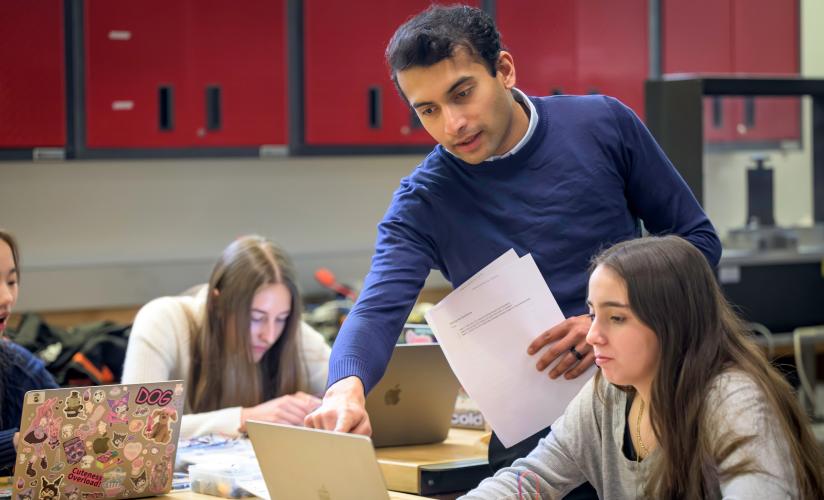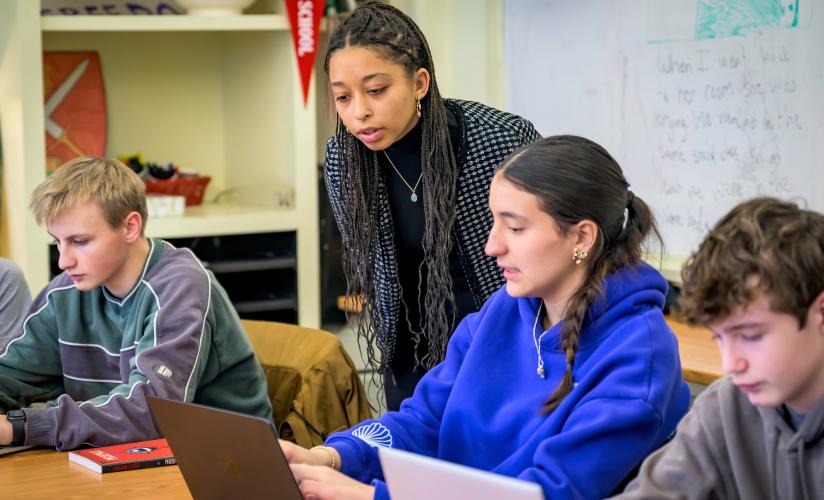

Bipartisan student effort engages Rich Lowry for wide-ranging discussions.
“So, almost a UBI kind of thing?” Tristan Brigham ’22 asked Rich Lowry, editor-in-chief of The National Review, an outlet for conservative news and opinion in America founded by William F. Buckley Jr.
“Exactly. The problem with a pure UBI is … wait a minute, UBI? Where am I, the Brookings Institution?” Lowry said, pausing to acknowledge the term Brigham had casually used to clarify if Lowry’s favoring of a wage subsidy over a minimum wage was like a UBI, or universal base income.
But, no — Lowry was in Humanities teacher Chris Carter’s American Government class, not a D.C. think tank. Earlier, he’d offered a Chapel talk and attended two classes with Humanities teacher Josh Duclos. He’d also had lunch with students, including Wade Bednar ’22 and Rocco Burdge ’22, leaders of the Young Republicans and Young Democrats clubs, respectively.
Lowry’s visit to St. Paul’s School on Jan. 25 was the result of an almost yearlong collaboration between the two Sixth Formers, who worked with the Visitors Committee, Carter, and Duclos to arrange his day at the School.
Burdge remembers the moment Bednar approached him with the idea of bringing a conservative speaker to campus. “I was immediately on board,” he says. “As someone deeply interested in the workings of our democracy, I believed that bringing in a political speaker from a conservative ideology would be incredibly beneficial to the School as it would promote the ideas of bipartisanship, civil discourse, and new perspectives.”

Throughout the process, Bednar was driven by a deep desire to foster productive political discussion at the School. “I’m a vocal conservative on campus and deeply committed to respectful discourse,” he said. “My wish is for students across all ideologies to be able to speak their minds. That, to me, is essential for good education.”
Lowry made it a point throughout the day to emphasize the importance of wide reading, deep questioning, and critical thinking. “To find your own political views, you have to figure it out for yourself,” he said. “You can’t trust any one source … [or] one person. It’s your duty to think for yourself.”
And the students, as Lowry noted toward the end of Carter’s class, were indeed thinking, as they asked about social issues, the divide in the Republican party and its future candidates, free speech, how well the Senate represents the American people, the impact of social media on the nation’s political landscape, systemic racism, the state of America’s middle class, foreign policy, international trade, gerrymandering, the Electoral College, and more.
“I’ve been around a lot of student groups, and this was just — the level of questions was great, and it was very flattering,” Lowry told them. “That you care enough to ask me, I really appreciate that.”
Carter, who’s taught at SPS since 1992 and holds The Richard F. Davis Chair, was glad her students had the opportunity for the intellectual discussion. She’s long believed that it’s critical to keep the political discourse balanced and last fall alone welcomed guest speakers to her classroom that included White House counsel Dana Remus ’93, Texas Congressman Van Taylor ’91, intelligence official Brett M. Holmgren, former White House ethics lawyer Richard Painter, and Ambassador Rufus Gifford ’92.
“The students asked such good questions of Lowry,” Carter said. “As a teacher, I feel incredibly blessed to have had a vast array of speakers for my American Politics, and now American Government, class.”



